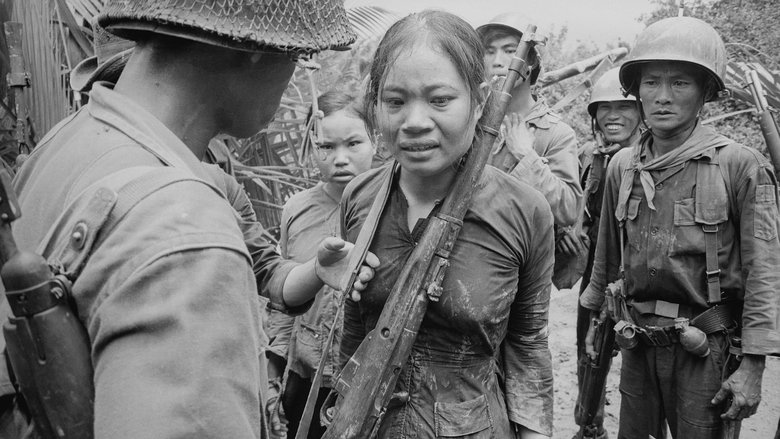The Vietnam War
The Vietnam War (2017)
Director: Ken Burns, Lynn Novick

Synopsis: An extensive retrospective of the Vietnam War, spanning the French colonial rule of Indo-China up to the present day. Archive footage, audio recordings, an authorial voiceover by Peter Coyote, and witness testimonies across the range of combatants, narrate the action.
Review: For a war that was so traumatic and divisive – not only in Vietnam and the US, but around the world – it is paradoxically laudable that documentarians, Ken Burns and Lynn Novick, have been able to cast such a measured and equanimous tone over the subject matter.
Although the partisan nature of the Vietnam War and its politicisation is charted extensively (because it was, after all, an incredibly charged historical event), Burns and Novick present a rounded and ostensibly unbiased view of the conflict. If anything, they are able to craft a very sage and philosophical perspective on the war. They nail and conceptualise very quickly that US involvement in Vietnam was a colossal misapprehension of what the Vietnam push for independence was actually about. Casting Vietnam as this “line in the sand” Cold War staging post, the US misunderstood that events in Vietnam were primarily a shaking off of the yolk of colonial rule – and perhaps the US, of all nations, should have recognised this sentiment.
The sense that the US was trapped by its initial dogma over Vietnam comes forth many times. Presidents as far back as Kennedy recognised that Vietnam was a military quagmire where success was unachievable, but they couldn’t be seen to back down from their domino theory Cold War stance and the promises they had made to support the various South Vietnamese political administrations. The absurdity therefore of trying to row against the tide of what was really possible in Vietnam, was borne out in various nonsensical statistical soundbites that almost appeared straight out of Joseph Heller’s ‘Catch 22’. The metric that they needed to kill more Viet Cong than was being replaced was one such absurdity – particularly as this took years to even get close to, let alone all of the US and South Vietnamese men that would die in the accomplishing of this feat, and the fact that more Viet Cong would be created the more you try to eliminate them! The neologisms of America’s ironically flawed non-military attempts at winning the war – ‘Vietnamisation’ and ‘Pacification’ – were equally absurd, as were some of the finessed numbers coming out of the military and political briefings.
Perhaps the film’s greatest strength though is the range and measure of the talking heads it has assembled to narrate the story of the Vietnam War. There is a marginal numerical advantage to American testimony – unavoidable considering this was ultimately a US-made and funded enterprise – but there are certainly enough Viet Cong, North Vietnamese and South Vietnamese speakers to three-dimensionalise the narrative. An interesting tactic by Burns and Novick is to withhold the witnesses’ present day status until the end of the documentary. And the unwillingness of the documentary to proselytise and jump ahead is rewarded by surprising metamorphoses of gung-ho marines to anti-war protesters over the course of the series. Some of the audio-recordings (otherwise fascinating Nixon-Kissinger briefings) could have done with subtitles due to the poor quality, but, technical quibble aside, this documentary is an outstanding resource for those looking to further their knowledge on one of the most traumatic wars of the 20th century. (February 2020)
Trackbacks